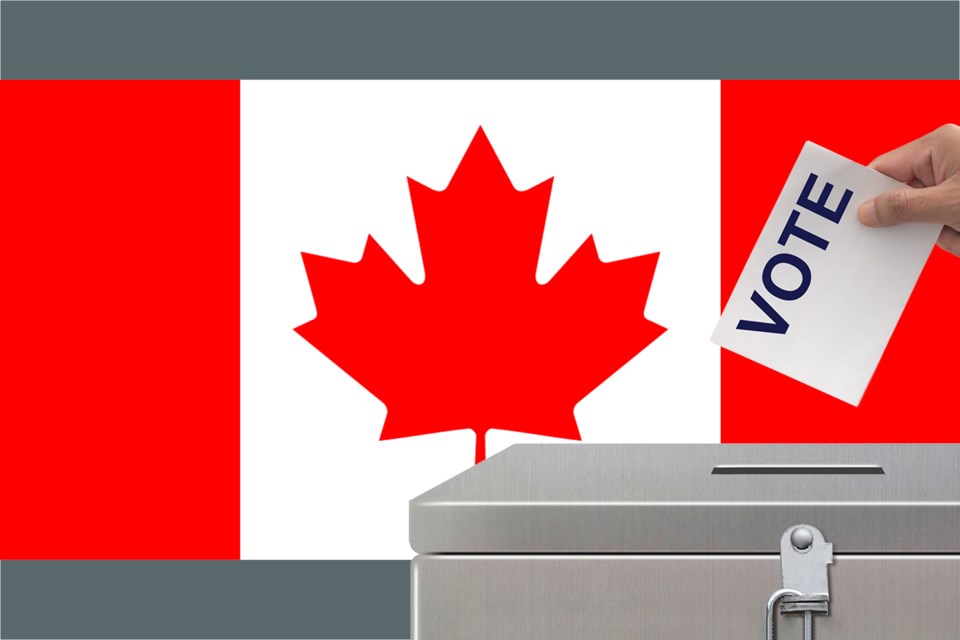Five months ago, a Conservative Party victory in the 2025 federal election seemed inevitable. The question wasn't whether they would win, it was by how much, and if it would be a record-setting victory for a right-wing party in Canada.
But their response to a series of events ultimately derailed their chances of forming the next government.
One was the resignation of Justin Trudeau as prime minister. Suddenly they weren't going to be facing off against a bungler who had been in power since October 2015. Now they were facing off against Mark Carney, a far more formidable and intelligent leader who was not part of Trudeau's unpopular government.
The other issue was the antics of U.S. President Donald Trump. Conservative leader Pierre Poilievre needed to take a hardline approach towards Trump. The Tories were running against Trump as much as Carney; they never properly addressed the matter. And Poilievre never eased concerns by a lot of Canadians that he was Trump-light.
This election should have boiled down to whether voters think a new Liberal leader would be sufficient to turn around a government that had been in power for nearly a decade and had proven to be insufficient. If Carney wasn't going to be enough, then Poilievre and the Tories were the only logical option.
Instead, it became about who the best leader was to respond to Trump's bully tactics and frequent threats on everything from tariffs to our sovereignty.
Now we have a Liberal minority government, the same result as the past two elections. It's a much stronger minority. Will they need some form of a deal with the Bloc Quebecois or the New Democratic Party to survive? We'll see.
Expect Carney to take the Liberals back to a more pragmatic path. There's going to be deficits, but that would have happened if Poilievre and the Tories had won. It's going to take a long time to emerge from the fiscal black hole created by the Trudeau years.
Carney would be wise to take the Liberals to a Jean Chretien or Paul Martin-style of Liberal Party, a centrist party as opposed to the centre-left direction of the Trudeau years. Whether that eases the concerns of people in the west is another story; we have to remember that a lot of people out here weren't too happy with the Liberals during the Chretien years.
We'll also see how Carney adjusts from being in the private sector to the public sphere and leading a country. As an economist, he was one of the best in the world, rising to become the head of the helm of the Bank of England. But there's a difference between being a great economist and a great prime minister.
At the very least, his background as an economist should help him as he steers the country through all of the uncertainty caused by Trump.
Hopefully, he'll avoid the "We Know Best" attitude that Trudeau had when dealing with the provinces.
The Tories are at a crossroad. Poilievre didn't resign on election night, even though the party lost an election they were destined to win. He also lost his Ottawa-area riding, leaving him on the outside looking in for the House of Commons. (I've long maintained that Poilievre's strength as a politician was evident in his repeated victories in Ottawa, an area that should be a Liberal stronghold with the wealth of public-sector employees). There will be calls for him to resign or to be punted as leader, but those who want him out have to ask whether there is someone who would do a better job.
A lot of things went right for the Tories on election night. They won more seats, captured a greater share of the popular vote and made in-roads in Ontario. But when the attitude is win or bust, and you lose, people will be upset.
But the biggest loser on election night was the New Democratic Party. Seven seats. They lost official party status and all it entails. A lot of supporters didn't forgive them for the supply-and-confidence agreement that propped up the Liberals. They had an unpopular leader in Jagmeet Singh who resigned on election night. And you can be sure a lot of their supporters turned to the Liberals in an effort to keep Poilievre out of power.
Here in Souris-Moose Mountain, nobody should be surprised that Steven Bonk of the Conservative Party was elected to a first term as our MP. The margin of victory might have been higher than some expected, but Tories typically win big down here, and that's likely to continue into the future.
Perhaps the biggest surprise in this riding on election night was the support shown for Liberal candidate Aziz Mian, who came in second to Bonk while continuing a trend of phantom candidates for the Liberals.
It will be interesting to see how long the Liberal minority government lasts. The NDP should be leery about another pact with the Liberals after the election results. But they'll be loathe to trigger a snap election as they sort out their own problems and look for a new leader. The Bloc Quebecois and even the Tories will have some frank discussions about their own leaders. It might not be the time for them to try to send Canadians back to the polls. If we do have a snap election, it might be called by the Liberals in an effort to gain a majority.
My attitude with a new government – and this is a new government with Carney in charge of the Liberals – is to reserve judgment. So we'll see how the Liberals do, how much they improve, and whether that's sufficient.
A lot of people out here are understandably angry with the results after the leadership of the Trudeau Liberals. We'll see whether a shift of direction under Carney is enough to ease some of that anger.





